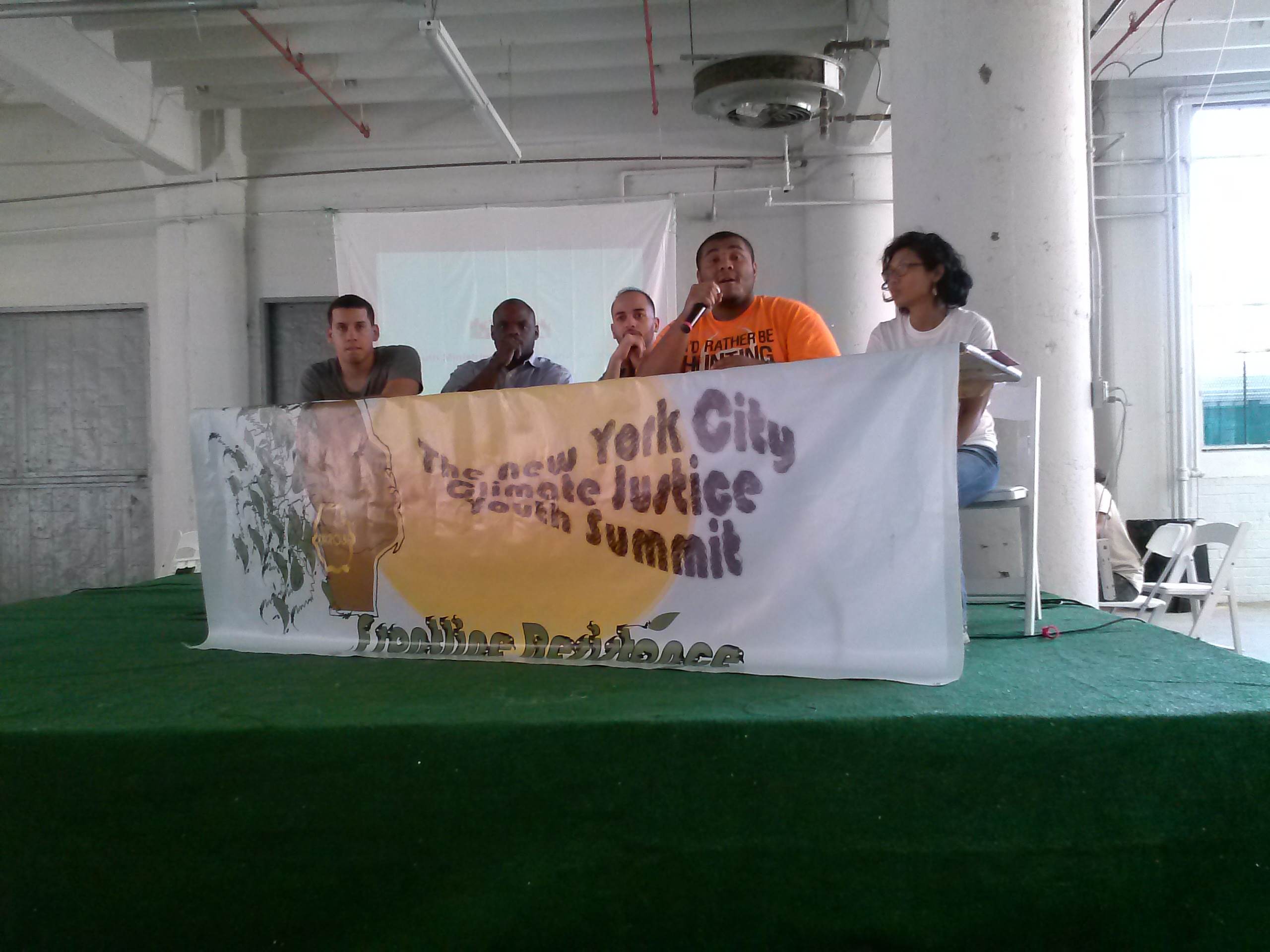
South Bronx especially vulnerable, councilwoman says
A panel of representatives from the city’s Environmental Justice Alliance urged hundreds of young people at a presentation in Brooklyn, to ramp up efforts to slow global warming.
South Bronx organizations Youth Ministries for Peace and Justice, The Point CDC and Nos Quedamos were among the groups represented at the third annual New York Climate Justice Youth Summit in Sunset Park on July 27, as part of a two-day event to strategize in the face of climate change.
The panelists and attendees debated ways to broaden the public’s understanding of rapid climate change, such as using art in school curricula to bring the message across and advocating for safe and accessible public transportation. The group also discussed community approaches to conserving energy and water, and weatherizing public housing to guard against extreme weather events.
“I’m tired of ignoring the issues in the environment like they don’t affect me personally” said Bronx native Jamie Williams, 17.
Victor Davila, 19, who teaches environmental science to other young people in Hunts Point and will major in that field at the University of Vermont, beginning this fall, took part in a panel that discussed problems and solutions with the audience.
“We are accelerating the earth’s natural cycle of warming up and cooling down to a level where we cannot adapt,” said Davila.
Organizations encouraged the young people to prepare themselves academically for job growth in emerging scientific fields that focus on sustainability. The Center for Urban Pedagogy and the New York Power Authority persuaded young job seekers to consider opportunities for internships, fellowships and full-time position positions with them.
City Councilwoman Melissa Mark Viverito, whose district includes Mott Haven, reminded attendees that the South Bronx is more vulnerable than other city neighborhoods to rising water levels climate change is causing, and added that the issue is compounded by the area’s waste transfer stations.
“The South Bronx bears the disproportionate burden” of the city’s waste treatment, she said.
Congresswoman Nidia Velazquez, who represents lower Manhattan and parts of Brooklyn and Queens, urged students to “demand change, demand action and challenge the system.”
Davila said the media is partly to blame for the public’s inaction, because it has failed to stress global warming to the extent the crisis calls for.
“People have a lot of misconceptions about climate change because of pop culture and it’s important to get the facts about what’s happening and what we can do, because we can take action,” he said.

